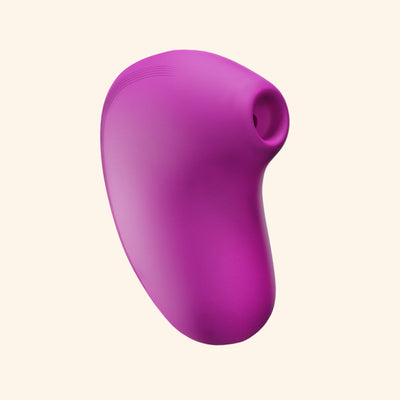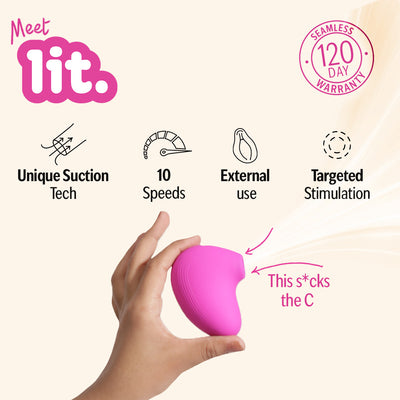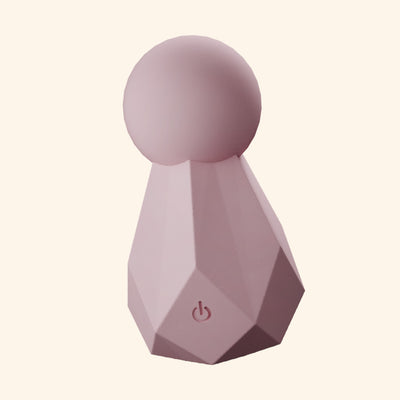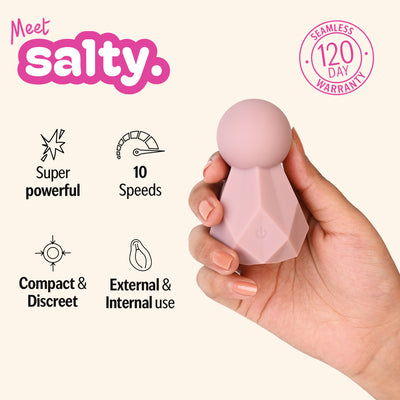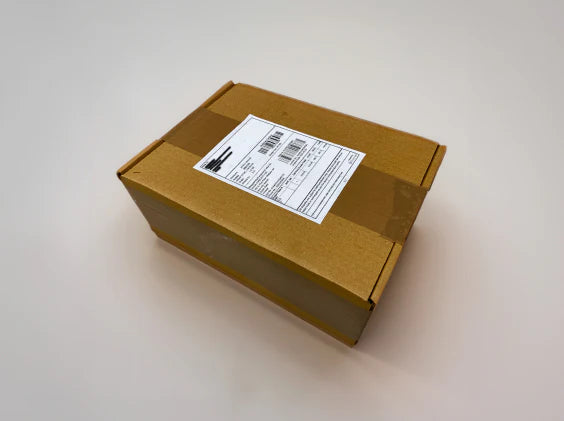Your cart is currently empty
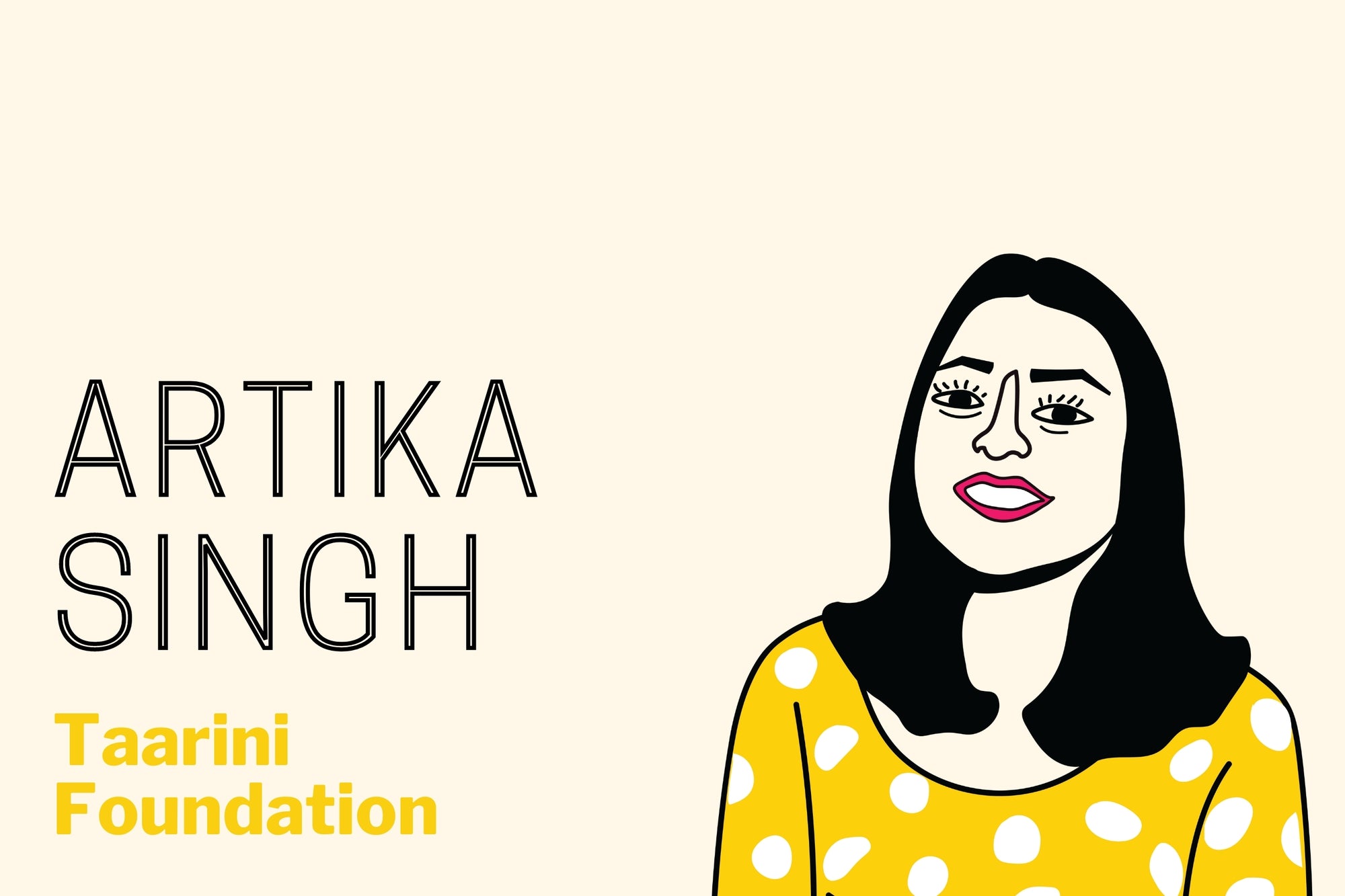
Meet Artika Singh, President and Founder of Taarini Foundation
Artika is a Menstrual & Sexual Health educator and the President of Taarini Foundation. She’s been trained in Public Health, Epidemiology & Action Anthropology & is currently pursuing her masters in Anthropology with a focus on Gender & Society.
I’ve been working with Artika since we launched That Sassy Thing and she’s been such a joy to work with and learn from. Kudos to her for the awesome work she’s doing on ground with her project ‘Mahina’ in MHM (Menstrual health management). Not to forget, how informative and comprehensive her content around sexual and menstrual health is (I especially go gaga over her amazing IG reels).
I wanted to learn more about her journey as a menstrual and sexual health educator, the ups and downs and everything in between. Let’s get her chatting:
On Taarini Foundation
Tell us more about Taarini Foundation, what your goal was when you started and what your journey has been like?
In 2015 I started working in the area of health and sanitation, I was mostly working with younger children of pre-pubertal ages. My work was in the general area of sanitation and health both, but not specifically addressing menstrual or sexual health.
About a year later, in 2016, I worked on a CSR project for a leading automobile company—that was my first exposure of working on the field and also specifically in the menstrual-sexual health space.
Apart from that, I have personally struggled with some or the other health issue, since the age of 12. To start off, it was PCOS—from not being sure about what it was to then being okay with it and then dealing with thyroid, then after that vulvodynia. So, to me it felt like such a great area to be working in and I've shared with some people in the past that when I first started off I can't deny that I had a bit of a saviour complex where I felt like I was going to help people or my education was gonna enable me to help people which is always a great feeling.
But as I started working I just realised that it wasn't a one way relationship- they were learning from us and we were learning so much from them too.
“So many times the larger focus was on building human relationships which were then leading us to creating a safe space for sharing information regarding sexual health or reproductive health, and then moving on to the education bit of it.”
Once I finished school I wanted to start an organisation which was based on building community relationships where the focus was on creating a safe space for people to share and learn. That's how Taarini Foundation started.
Can you tell me more about Taarini Foundation and the project(s) you’re working on?
Taarini Foundation currently has one project, ‘Mahina’, which is in the area of MHM (Menstrual health management) & Sexual- Reproductive Health. One big area of focus is sustainable menstruation. We work with groups which are living in different urban localities and have access to basic resources. We’ve been on it for two years and we've grown so much. Every time we meet people or educators we always learn something new from their experiences.
“Since we are dealing with MHM, Sex Ed and reproductive wellness, we work hard on doing it in as inclusive a manner as possible, and you know completely acknowledging that sometimes it’s easier for us to be inclusive of one part of a person’s identity than of another person’s.It takes effort on our part to educate ourselves too, and we want to put in that effort.”
So the goal is to keep working in this area and keep learning to create a project that is in the future inclusive to many more identities than we are catering to now.
On the menstrual and sexual health space
How has the space and your experience evolved over time? And who are you speaking to in the terms of your audiences?
(ecstatically shares) That's such a terrific thing to look back at because it has been six years since I first started. Back then even talking about periods, period education or menstruation was not okay. It wasn't perceived in the same way as it is today. I won't go ahead and say that it has been completely normalised as we've done only 1% of the job, but that 1% improvement is visible in the way people live their lives and in the way they interact with other people around & is commendable. There are some wonderful organisations and individuals who have been doing this work for more than twenty years and I've only been here for six. I have to say that a lot of the credit goes to all of those people who have been doing this for years and doing it consistently, again and again, even though there was a lot of pushback they must have faced- they have paved the way for people like me to come & work here.
I do feel that the idea is to be consistent, know and be aware of the fact that there will be people not agreeing with you—as is the case with any opinion about anything right?
And not to miss, menstruation or sex is a very sensational topic even now. So keeping that in mind, you either challenge that very actively or work around it in a way that your point is put across. And things are always changing, so we all need to keep learning and unlearning.
When it comes to our target audiences, with social media (Instagram specifically), it's become difficult to actually understand who you're talking to, of course it has some tools to roughly understand the digital profile of who you're talking to, but we often really don't exactly know who it is. This is both a good and a bad thing, it's a good thing because you can talk about any topic—and there will be takers for it. But it also means that we as educators need to create content that's good for everyone- covering various age groups, genders, sexual orientations & other identities. So it better be good for anybody that stumbles upon it and by that I mean it shouldn't be hurtful, harmful or triggering and definitely be useful.
Then there’s working on the field—in person interactions—that’s a whole different story and it’s a much more traditional form of research & delivering information— you know exactly who you're going to talk to, you can create your projects focusing on exactly the needs of that particular group, you can include certain topics and exclude certain topics. In that sense there is a lot more space for customization.
Who is sex ed meant for?
According to me, everyone—everybody should be getting it.
“To me, comprehensive sexuality education is everything from knowing about anatomy, menstruation and reproductive health. It’s knowing about pleasure, consent, gender, sexuality- the political, cultural & religious aspects—it’s all of those things and more.”
Plus, it's holistic in a way where it can be used by diverse people- be it gender identity, caste identity or socioeconomic background. The hope is to build a space which can cater to the sex-ed needs of everyone.
Again, sex-ed can be taught to people of all age groups, what you can teach a person at what age group depending on their cognitive abilities obviously changes.
“If you say what to teach in sex ed to a child, it would include the basic anatomy, discussing biological processes, introducing them to certain terms, and as you grow up, you teach them more complex things. It's just like how you would learn 1,2,3,4 when you're a kid and then learn division and then go on to other things, as you grow up: I would imagine it to go in that progression.”
What are some of the biggest challenges you faced? Were there times when you felt like maybe this is not working out?
The first challenge is the unlearning process that I had to go through as an educator. To be able to adequately teach people, it is first very important for me to have accurate & inclusive knowledge- that required me to relearn & reassess a lot of things that I thought I knew- but didn't quite- as it turned out. I had an idea in mind and there was a goal in mind, but there were a lot of things that we had assumed before starting work in the field- and that just isn’t right.
Growing up in a patriarchal society I tend to assume that a lot of the negative decisions happening towards the body of a menstruator are coming from a place of oppression by males in their homes. However, when we went to the field we realised that the way patriarchy operates in different class & caste categories is very different.
We learnt that menstruators had more autonomy than we had realised and they were responsible for making decisions which were not necessarily great for their own bodies. Patriarchy existed, yes- but it wasn’t the only factor that was leading to bad health practices. Nobody was telling them that's what you need to do, but it was inherently patriarchal that they had grown up seeing certain things, or maybe seen their mothers or somebody else at home do that thing- it was so ingrained in them.
“I guess it's easier to challenge something which is not so internalised versus something that is internalised, because when you challenge something that's so internalised you're doing it at the cost of completely losing their interest and their attention, so that was one big challenges that we had to learn to understand their position.”
There's a concept called ‘ethnocentrism’ where you believe that your culture is better than everybody else's and whether we know it consciously or not we all in our lives practice that at some level. So going into the the field our first great learning was we had to consciously challenge ourselves against being ethnocentric: whatever information was given to us we analysed it objectively and do not draw comparisons between something which we previously know as “common”. We keep it separate and just be really open to hearing the information and THEN make a decision.
On the other hand, the challenge which existed and still exists is about how legit our work is. Working as an online sex and menstrual health educator, our work is getting recognition which gives me so much happiness.
“I have gone through personal experiences where we've just been asked why are we picking THIS as a project, why not something else, something more conventional. Sometimes I’ve been asked this by people in our family, sometimes by people from work. So just the idea that this is not considered “work”, rather “serious work” by a lot of people is a challenge. And it's a little bit demotivating to be honest.”
On sex ed and period ed
Did you get comprehensive period and sex ed growing up?
I feel that peer education is an overlooked part of a person's socialisation, it's inevitable.
I did get basic period ed when I was growing up and then there was that time when I had PCOS—I was on the birth control pill which was back then considered the only treatment for the condition. I went to a residential school so we weren't allowed to keep medicines with ourselves. They would be in this group box and the whole dormitory’s medicines would be with the teacher in charge.
“My medicine was called “Intimacy plus”, I still have the wrapper somewhere- it became such a joke for a 13 year old Artika. My batchmates and seniors found it hilarious that somebody our age was taking a medicine called intimacy plus and of course it had this heteronormative, raunchy picture of a normative man and a normative woman, being sensual. Forget birth control, we had no proper idea of how birth even happened. So it was both weird and hard.”
In school we were a batch of 72 people & my class (section) had 27 of us—and just for our class—our teachers randomly & arbitrarily decided to host a sex ed class during what was supposed to be a biology period—we were in class 6 at the time. We weren't previously informed or sensitised or prepared. And I'm sorry, with no offence to anyone, it was so badly curated.
“We were straight out taught about pleasure, kinks and fetishes. And this happened without using these words, the people who gave it to us just came out and shared their personal experiences. I know that they were doing it with the intention of normalising things and there was also a talk about period sex. In class 6 I was 11 years old and I hadn't even started my period, so I was scandalized (and so were my friends).”
How do you think period ed and sex ed can be imparted in a more holistic and realistic way at home?
Period ed or sex ed, including everything is a full time job so sometimes it may be easy for us to say ‘oh parents/guardians should start it off with their children from a younger age’ but we also do recognise that there are so many other aspects that are dynamic when a child is growing up at home, plus there are things beyond raising the child that are happening at home & in the parent/guardian’s lives- so it also depends on how a parent/guardian is placed, we can't make a comment on that without being in their shoes.
Even in the cohort of guardians/parents, it may differ from one person to another.
"But I think one of the ways to realistically start off—whether it's period education or talking about pleasure, intimacy—is to consciously make an effort to remove the shame from it.. So if you have a menstruator in the house and they want to store their period products out in the open, that's okay. If they are walking from one place to another with it in their hands that's okay. If anybody can buy it for them, that's okay."
The second thing I noticed growing up is that if we were menstruating and we were at a dinner table, there would be a hesitation in saying ‘XYZ's stomach is hurting because they’re on their period’. It would always be covered up by saying ‘oh they ate something bad last night’. One would not view this as education maybe, but to me I think removing the shame is part of the education and this also takes effort because again it's easy for me to say this but it may take somebody else a lot more effort to say it without feeling the shame, because it may have been internalised or it’s how they viewed it while they were growing up. So I think one realistic way to do it is to talk about it, literally just talk about it, and you know how we say ‘any publicity is good publicity’, in the same way ‘any education is good education’.
On sensitisation
How can we bring more sensitisation and educate non-menstruators also about people who menstruate?
So the idea is to view menstruation as the normal process that it is. The minute you do that certain things become clear- why would you not teach a certain group of people about menstruation and decide to teach only one set of people?
"If you teach everyone about malaria it's not like everyone will get malaria but you still teach them about it, it's knowledge one should have. It’s important that the people who are teaching/talking about menstruation should not do it in a hush-hush manner or speak hesitantly- the minute you attach shame to anything is when you decide that it would be very shameful to talk about it to people who are not going to experience it or it is going to be shameful to tell them that this even exists."
It’s vital we acknowledge, understand and believe that it’s a normal process and treat it as such and teach each and everybody about this because in a general sense almost everyone does know a menstruator so it cannot harm you to definitely add some extra information about this particular aspect of the another person's life. How menstruation is embodied by a lot of people while they are growing up also does impact their mental health and when somebody else is coming from a place of neglect and they make remarks coming from a place of gross negligence, it can have negative effects on the mind of the menstruator. For someone who already experiences shame about menstruation- a negative remark can be very harmful & damaging.
"I would like to request a change in the biology syllabus—to have reproduction as a separate chapter or how about menstruation being a separate chapter or a section? I mean how can you explain reproduction when you’ve explained menses in half a line. It’s also something that can help normalise the conversation around it in school."
Books on Sex Ed
Can you name any book(s) adults could read to get better sex ed?
First of all, the person who is reading the book should identify the level of understanding they are at. Yes, there are some books for kids, teenagers, adults/ different age categories, because they have to be organised in some way. But if you feel like you could benefit from a book that’s maybe made for a teenager because that’s somewhat the information you’re looking for, please go ahead and do that. There are no fixed rules to this.
"For comprehensive sex ed being such a large topic, pleasure will be a part of it, a book of anatomy will be a part of it, a book on consent will be part of it too, so you should pick a book really just depending on what you’re looking to learn. It’s key to remember that the learning process is forever dynamic. If I've read some books, maybe there is information in there that is now outdated, or some information that now stands changed, so you need to be mindful."
But I'll tell you two new books that have a lot of concepts and are up to date and I'll tell you one website that I personally like. The first book is called ‘Sex Ed: A guide for adults’ by Ruby Rare, and it’s such a fun and fantastic take on the whole thing. It’s illustrated, there are interactive activities AND there is information. I love the tone of the book and where it’s coming from because when it comes to Sex ed I personally feel that instead of focusing on what’s right and what’s wrong, we should discuss what’s safe and unsafe. An individual may intend to do something that may feel wrong to you and it’s okay as long as they know about the risks involved, because sex is both a public and a private entity. Ultimately nobody should be dictating what you’re practicing in your personal lives, may it be sex or anything else. In that sense, the book is really great because it does focus on unsafe and safe sex, instead of just attaching value judgement of right and wrong, and that’s something we try to do in our work as well.
If someone wants to read about gender they can read ‘Gender Trouble’ which is a 1990-91 book by Judith Butler, an anthropologist who worked with third-wave feminism and extensively on gender and sex. They were one of the first people who actually put forth academic talks about gender being a dynamic process, and it being different from sex assigned at birth.
Another great book I want to recommend is ‘Queer: A Graphic History’ by Meg-John Barker. It’s in a comic book format and narrates a brief history of queer and all of the aspects one can view it in.
Oh and do check out this website called itspronouncedmetrosexual.com by the author Sam Killermann. They also have some books which you can find on the blog itself. It’s a really nice blog that contains a lot of contemporary topics.
When were you first introduced to LGBTQIA+?
It was actually through a short story in school that I read on my vice principal’s recommendation. “Lihaf” by Ismat Chughtai (1942). It’s not educational/academic-It’s a piece of fiction which talks brilliantly about same sex love, child sexual abuse, sexual curiosity, intimacy, pleasure - all of this. So that was my first brush against this whole new concept, which was something that I didn’t know about. Growing up we didn’t even have a good understanding of words like ‘lesbian’ or ‘gay’ and we were accustomed to using them in a derogatory/mocking way. The whole concept of non-binary gender & possibility of so many sexualities was never introduced to me, formally or informally̦—mostly kept as something one mustn’t talk about.
How can brands in the sexual wellness space be more sensitive?
I think brands working in the sexual wellness space- especially those engaging in any kind of educational activities- must realise what a great privilege & responsibility it is to teach sex-ed, sexual wellness & hence act with accountability. The same thing is valid for us educators as well–if I feel stuck in a place, I would reach out to another educator to help me fact check or check my language, because I don't know it all and I'm bound to make mistakes like anybody else. If you are a brand that does decide to engage in creating awareness or some sort of educational model whether it’s on social media or offline, please check where your facts are coming from and sometimes you might need to reach out to somebody outside of your own team to do that. Your team may consist of experts in marketing or sales and maybe don't know a lot about the topic that you're working with right now. Maybe they're going to do a simple Google search, versus if you ask an educator they would have done 300 of those Google searches for their own content as well. So I think a great place for brands that are working in the reproductive and menstrual wellness space is to collaborate with educators working in this space. There is no harm in reaching out to people.
Also, treat the educator as an asset who is going to help you in marketing, and understand the value that goes in creating their work, be it in terms of compensation or how much time is being invested. The idea is to have a mutually beneficial relationship.
A message to teenagers
If you were to give a message to teenagers who are about to have their first consensual sexual experience what would you tell them?
I would ask, do you really want to do it? I asked myself that question too. If it's a teenager there can be so many dynamics in play. The first thing to do is just check in with yourself, are you feeling safe, are you feeling comfortable? And I guess I want to tell them that they have the right to say no or to back out at any given point of time. I don’t mean to sound dark and negative or be like ‘don’t go ahead with that or don't experience it’, but it really is your choice- and understand that to know you have a choice is so powerful. If you have agreed to something one time that doesn’t mean that you can’t take a step back.
Also, stay safe :)
------
Check out Taarini Foundation's important and awesome work on Insta here.
